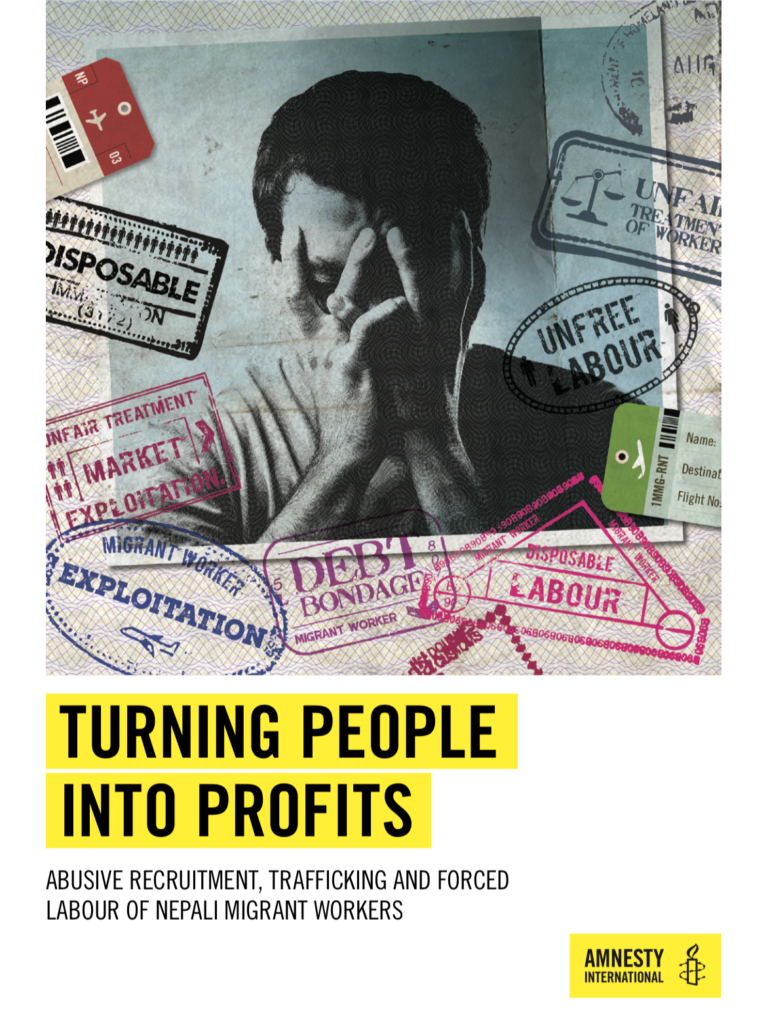This report provides fresh evidence that despite recently-introduced government reforms, entrenched patterns of abuse of Nepali migrant workers remain unaddressed. During recruitment processes, local agents and recruitment agents in Nepal are still able to deceive and exploit migrants without significant fear of being caught or punished. New government policies meant to improve the protection of migrant workers’ rights, and drastically reduce what recruitment businesses can charge workers, have not been adequately resourced, monitored, or enforced. Migrants remain at risk of crippling indebtedness, forced labour, and various forms of exploitation throughout the migration process.

